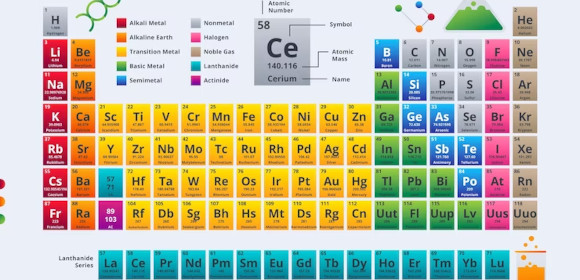Which element has the atomic number 1?
Helium
Hydrogen
Lithium
Beryllium

A lot of things in life are wholes made up of individual parts. For example, the resume introduction, resume profile, work experience, list of skills, and work references are parts that make up the resume. These parts are sometimes referred to as elements.
Size: 31 kB
An element is a word that has a lot of meanings and interpretations. For example, one can refer to a part of a spreadsheet as data elements, while others can see elements as the basic state of nature. People define the word element as the basic and irreducible part of a larger entity, concept, or action. This means each concept, like objectives and core values, can be broken down and dissected into more simple elements, which are wholly dependent on the context, tone, and theme.
Concepts are ideas that are formed through the scientific method and deductive reasoning. This means that each concept will have various codes and parts that will contribute to the current understanding of the overall concept.
Begin by understanding the concept and its basic description you want to break down. This is because we are doing a top-down approach by inducting the overall concept into smaller parts.
After you have understood the concept and its description, you must dissect the concept into smaller parts. These smaller parts should each refer to an individual thing or concept that will materialize in the overarching concept.
Elements are the basic and irreducible parts of a specific concept. If the part cannot be broken down into simpler elements or concepts, then the specific part can be considered an element.
Each element has a specific individual function that will contribute specific characteristics to the overall concept. Determine the importance of each element, and whether or not it is an element that is not really necessary for the overall concept.
Concepts can be composed of plenty of elements. It is very important to ensure that you have noted down all the important and basic elements of a concept, and repeat steps 3 and 4 until you have exhausted all parts.
The periodic table of elements is a list or chart that indicated all the known chemical elements that scientists, researchers, and chemists have observed in their theses and research. This table arranges the elements based on their atomic number or atomic structure. Not only does the periodic table help list elements through their atomic structure, but the table also includes other chemical properties and physical properties exhibited by the elements.What is the Periodic Table of Elements?
Elements are the things that create or make up a specific object, entity, or concept. These elements are parts with individual properties, objectives, goals, and functions, which can create unique functions and objectives. Not only does each element give a specific contribution to the overall entity or concept, but the quality of the individual elements in the entity or concept will also determine the quality of the whole thing. Therefore it is very important to know the function, importance, and objective of each part or element as it can affect the overall quality, function, and objective of the whole entity or concept.Why is it important to know the elements that make up a specific concept?
Eleven chemical elements comprise the person’s body, six of which are more in volume than the other five elements. Hydrogen (H), oxygen (O), carbon (C), nitrogen (N), calcium (Ca), and phosphorus (P) make up more than ninety-nine percent of the human body, as most of these chemical elements make up the human bone, blood, and other parts of the body. The other five elements that compose the human body are sulfur (S), potassium (K), sodium (Na), chlorine (Cl), and magnesium (Mg), which make up the various salts found in the human body.What are the elements that make up the human body?
Elements can refer to many different concepts, which are entirely dependent on the context of the dialogue or writing. But all of these elements can easily be defined as the fundamental and irreducible part of something whole. Another way to define elements is either a distinguishable section of a group or a group that makes up the larger unit. Understanding the various elements that come into play, allows the person to easily absorb and dissect information which can lead to great things.
Text prompt
Add Tone
10 Examples of Public speaking
20 Examples of Gas lighting
Which element has the atomic number 1?
Helium
Hydrogen
Lithium
Beryllium
What is the chemical symbol for Gold?
Au
Ag
Ga
Go
Which element is known as the \"King of the Elements\" due to its high reactivity?
Oxygen
Sulfur
Fluorine
Chlorine
Which of the following elements is a noble gas?
Nitrogen
Oxygen
Argon
Hydrogen
Which element is used as a primary component in pencil lead?
Carbon
Silicon
Lead
Tin
What is the most abundant element in the Earth's crust?
Iron
Silicon
Oxygen
Aluminum
Which element has the highest electrical conductivity?
Copper
Silver
Gold
Aluminum
What is the heaviest naturally occurring element?
Uranium
Plutonium
Thorium
Radium
Which element is liquid at room temperature?
Sodium
Bromine
Sulfur
Magnesium
What is the chemical symbol for Potassium?
P
Po
K
Pt
Before you leave, take our quick quiz to enhance your learning!

